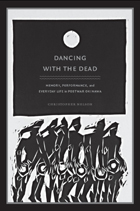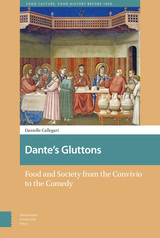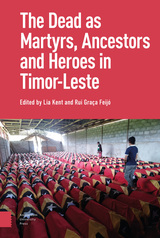110 books about Customs & Traditions and 6
start with D
110 books about Customs & Traditions and 6
110 books about Customs & Traditions
6 start with D start with D
6 start with D start with D

Dancing with the Dead
Memory, Performance, and Everyday Life in Postwar Okinawa
Christopher T. Nelson
Duke University Press, 2008
Challenging conventional understandings of time and memory, Christopher T. Nelson examines how contemporary Okinawans have contested, appropriated, and transformed the burdens and possibilities of the past. Nelson explores the work of a circle of Okinawan storytellers, ethnographers, musicians, and dancers deeply engaged with the legacies of a brutal Japanese colonial era, the almost unimaginable devastation of the Pacific War, and a long American military occupation that still casts its shadow over the islands. The ethnographic research that Nelson conducted in Okinawa in the late 1990s—and his broader effort to understand Okinawans’ critical and creative struggles—was inspired by his first visit to the islands in 1985 as a lieutenant in the U.S. Marine Corps.
Nelson analyzes the practices of specific performers, showing how memories are recalled, bodies remade, and actions rethought as Okinawans work through fragments of the past in order to reconstruct the fabric of everyday life. Artists such as the popular Okinawan actor and storyteller Fujiki Hayato weave together genres including Japanese stand-up comedy, Okinawan celebratory rituals, and ethnographic studies of war memory, encouraging their audiences to imagine other ways to live in the modern world. Nelson looks at the efforts of performers and activists to wrest the Okinawan past from romantic representations of idyllic rural life in the Japanese media and reactionary appropriations of traditional values by conservative politicians. In his consideration of eisā, the traditional dance for the dead, Nelson finds a practice that reaches beyond the expected boundaries of mourning and commemoration, as the living and the dead come together to create a moment in which a new world might be built from the ruins of the old.
Nelson analyzes the practices of specific performers, showing how memories are recalled, bodies remade, and actions rethought as Okinawans work through fragments of the past in order to reconstruct the fabric of everyday life. Artists such as the popular Okinawan actor and storyteller Fujiki Hayato weave together genres including Japanese stand-up comedy, Okinawan celebratory rituals, and ethnographic studies of war memory, encouraging their audiences to imagine other ways to live in the modern world. Nelson looks at the efforts of performers and activists to wrest the Okinawan past from romantic representations of idyllic rural life in the Japanese media and reactionary appropriations of traditional values by conservative politicians. In his consideration of eisā, the traditional dance for the dead, Nelson finds a practice that reaches beyond the expected boundaries of mourning and commemoration, as the living and the dead come together to create a moment in which a new world might be built from the ruins of the old.
[more]

Dante's Gluttons
Food and Society from the Convivio to the Comedy
Danielle Callegari
Amsterdam University Press, 2022
Dante’s Gluttons: Food and Society from the Convivio to the Comedy explores how in his work medieval Italian poet Dante Alighieri (1265-1321) uses food to articulate, reinforce, criticize, and correct the social, political, and cultural values of his time. Combining medieval history, food studies, and literary criticism, Dante’s Gluttons historicizes food and eating in Dante, beginning in his earliest collected poetry and arriving at the end of his major work. For Dante, the consumption of food is not a frivolity, but a crux of life in the most profound sense of the term, and gluttony is the abdication of civic and spiritual responsibility and a danger to the individual body and soul as well as to the collective. This book establishes how one of the world’s preeminent authors uses the intimacy and universality of food as a touchstone, communicating through a gastronomic language rooted in the deeply human relationship with material sustenance.
[more]

The Dead as Ancestors, Martyrs, and Heroes in Timor-Leste
Lia Kent
Amsterdam University Press, 2020
During the 24-year Indonesian occupation of East Timor, thousands of people died, or were killed, in circumstances that did not allow the required death rituals to be performed. Since the nation’s independence, families and communities have invested considerable time, effort and resources in fulfilling their obligations to the dead. These obligations are imbued with urgency because the dead are ascribed agency and can play a benevolent or malevolent role in the lives of the living. These grassroots initiatives run, sometimes critically, in parallel with official programs that seek to transform particular dead bodies into public symbols of heroism, sacrifice and nationhood.
The Dead as Ancestors, Martyrs, and Heroes in Timor-Leste focuses on the dynamic interplay between the potent presence of the dead in everyday life and their symbolic usefulness to the state. It underlines how the dead shape relationships amongst families, communities and the nation-state, and open an important window into – are in fact pivotal to – processes of state and nation formation.
[more]

Deepening Divides
How Physical Borders and Social Boundaries Delineate our World
Didier Fassin
Pluto Press, 2019
At a glance, 'borders' and 'boundaries' may seem synonymous. But in the real (geopolitical) world, they coexist as distinct, albeit overlapping entities: the former a state's delimitation of territory; the latter the social delineation of differences. The refugee crisis in Europe showed how racial and ethnic boundaries are often instrumentalised to justify the strengthening of state borders - regardless of the cost in human life. But there are other, less tragic, examples that illustrate this overlapping as well, and ultimately demonstrate that the oft-differentiated spheres of borders and boundaries are best understood through their relationship to one another. Deepening Divides explores this relationship from many distinct perspectives and national contexts, with case studies covering five continents and drawing on anthropology, gender studies, law, political science and sociology for a truly interdisciplinary collection.
[more]

Discovering the Dutch
On Culture and Society of the Netherlands
Edited by Emmeline Besamusca and Jaap Verheul
Amsterdam University Press, 2014
What are the most salient and sparking facts about the Netherlands? This updated edition of Discovering the Dutch tackles the heart of the question of Dutch identity through a number of essential themes that span the culture, history and society of the Netherlands. Running the gamut from the Randstad to the Dutch Golden Age, from William of Orange to Anne Frank, this volume uses a series of vignettes written by academic experts in their fields to address historical and contemporary topics such as immigration, tolerance, and the struggle against water, as well as issues of culture - painting, literature, architecture, and design among them. All chapters are written by academic experts in their fields who have extensive experience in explaining the many features of ŸDutchnessŒ to a foreign audience. Each chapter comes to life in vignettes that illustrate characteristic historical figures or essential aspects in Dutch culture and society from William of Orange and Anne Frank to Dutch cheese and the inevitable coffeeshop.
[more]

Dry Spells
State Rainmaking and Local Governance in Late Imperial China
Jeffrey Snyder-Reinke
Harvard University Press, 2009
Chinese officials put considerable effort into managing the fiscal and legal affairs of their jurisdictions, but they also devoted significant time and energy to performing religious rituals on behalf of the state. This groundbreaking study explores this underappreciated aspect of Chinese political life by investigating rainmaking activities organized or conducted by local officials in the Qing dynasty. Using a wide variety of primary sources, this study explains how and why state rainmaking became a prominent feature of the late imperial religious landscape. It also vividly describes the esoteric, spectacular, and occasionally grotesque techniques officials used to pray for rain. Charting the ways in which rainmaking performances were contested by local communities, this study argues that state rainmaking provided an important venue where the relationship between officials and their constituents was established and maintained. For this reason, the author concludes that official rainmaking was instrumental in constituting state power at the local level. This monograph addresses issues that are central to the study of late imperial Chinese society and culture, including the religious activities of Chinese officials, the nature of state orthodoxy, and the symbolic dimensions of local governance.
[more]
READERS
Browse our collection.
PUBLISHERS
See BiblioVault's publisher services.
STUDENT SERVICES
Files for college accessibility offices.
UChicago Accessibility Resources
home | accessibility | search | about | contact us
BiblioVault ® 2001 - 2024
The University of Chicago Press









